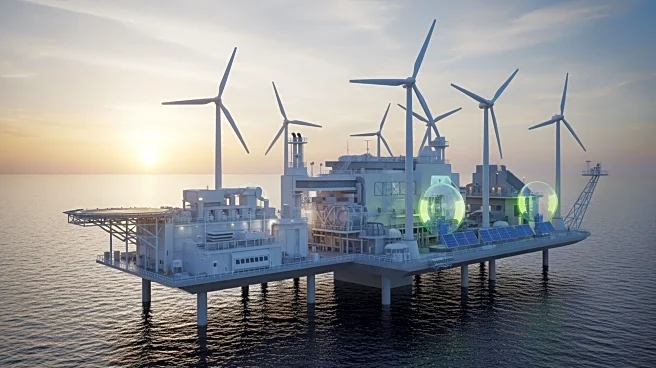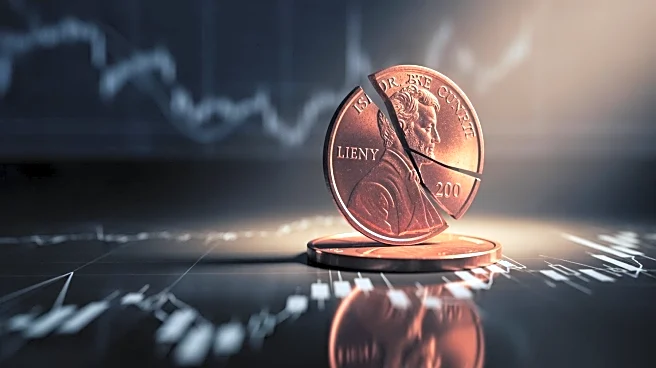What's Happening?
TWMA is revolutionizing drilling waste management by implementing innovative technologies to treat waste onsite, significantly reducing emissions and enhancing safety. The company utilizes its electric,
automated RX series to recover valuable materials and align offshore operations with global net-zero ambitions. The oil and gas industry faces the challenge of delivering reliable energy while reducing emissions, with the International Energy Agency emphasizing a 45% reduction in emissions by 2030. Offshore drilling, known for its energy-intensive nature, is under scrutiny for fuel efficiency and emissions. TWMA's approach to drilling waste management, including technologies like thermal desorption and fluid treatment, is transforming waste into a valuable resource, reducing the need for carbon-heavy transportation to shore.
Why It's Important?
The shift in drilling waste management is crucial for the oil and gas industry as it seeks to balance energy production with environmental sustainability. By treating waste onsite, TWMA reduces the carbon footprint associated with transporting waste, thus contributing to emissions reduction. This approach not only aligns with global climate goals but also enhances operational resilience and safety. The ability to recover and reuse materials from waste streams supports circular economy principles, offering economic benefits and reducing reliance on fresh resources. As environmental performance becomes a priority for regulators and investors, effective waste management is increasingly seen as a strategic enabler of sustainability, providing operators with tangible data for ESG reporting.
What's Next?
TWMA is set to launch the RX2 model, a fully electric, zero-emission system, by late 2025. This model aims to further reduce emissions and improve safety by minimizing lifting operations and enhancing processing efficiency. The RX series will expand to include models for onshore facilities, maintaining zero-emission foundations while increasing throughput for industrial-scale operations. As the offshore sector moves towards net-zero, drilling waste management will play a pivotal role in achieving environmental and commercial objectives. TWMA's continued investment in waste management technologies promises significant environmental impacts, with automation and digitalization redefining operational efficiency and ensuring measurable gains.
Beyond the Headlines
The transformation in drilling waste management reflects a broader industry shift towards sustainability. By challenging traditional assumptions and applying innovation to long-standing challenges, the industry is uncovering value in areas previously seen as cost centers. The integration of automation and digitalization not only enhances efficiency but also provides operators with verifiable data to support environmental claims. As the industry progresses towards net-zero, comprehensive solutions spanning alternative fuels, carbon capture, and renewable integration will be essential. Drilling waste management offers a clear opportunity for operators to demonstrate that sustainability and performance can reinforce each other, driving gradual improvements across the value chain.










